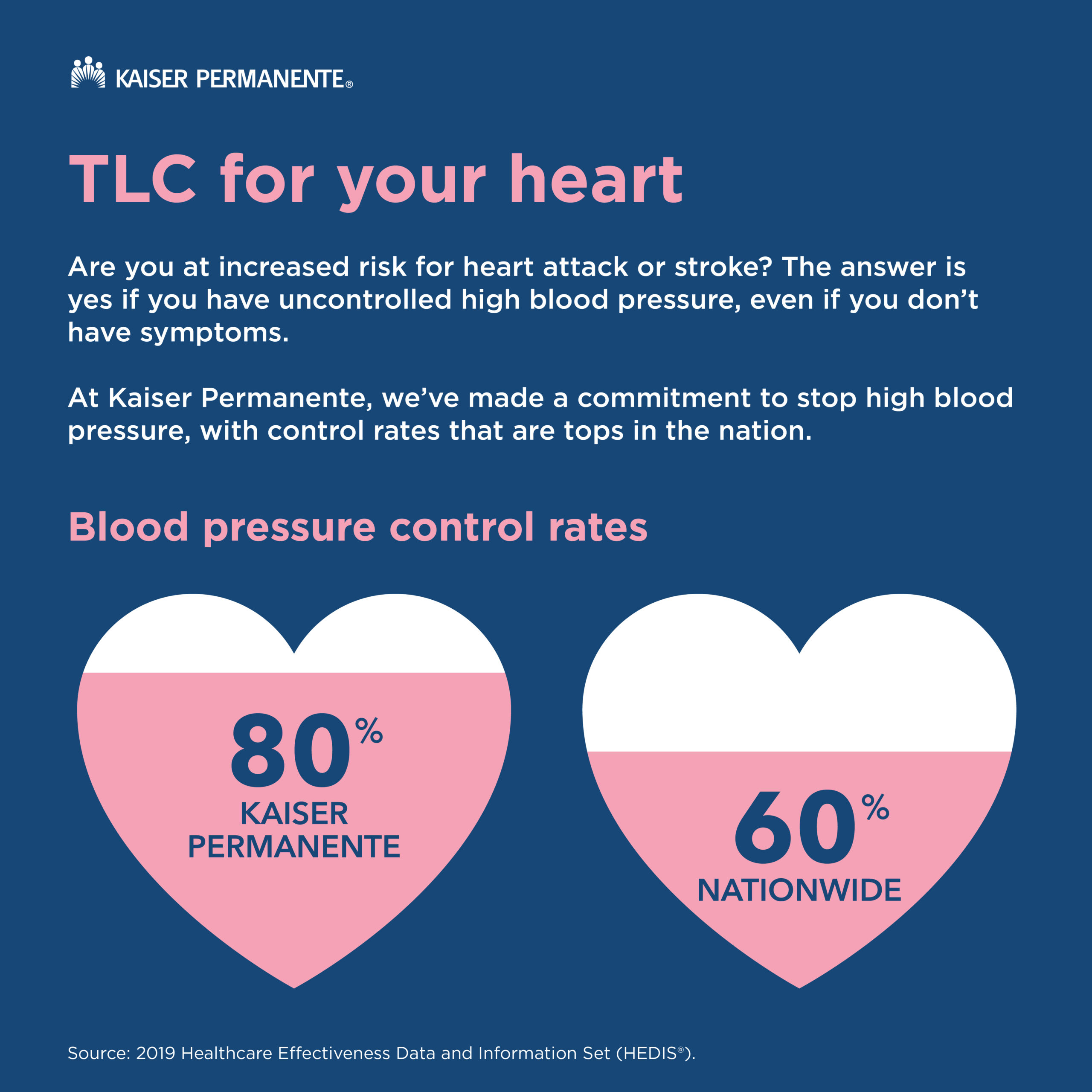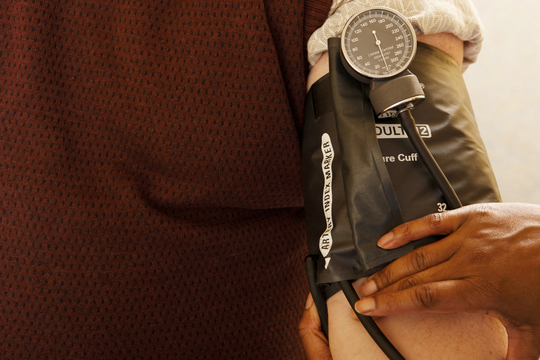Sorry to break it to you, but if you have uncontrolled blood pressure—you’re at a higher risk for heart attack or stroke. The good news is, you can help avoid future heart problems by making healthy changes today.
Each year, the CDC reports more than 600,000 deaths from cardiovascular disease (CVD), which includes health conditions like heart attack and stroke. Though mostly preventable, CVD is the leading cause of death among men and women regardless of race or ethnicity. However, research confirms that health disparities related to stroke, coronary heart disease, and heart failure exist in the U.S.
Before age 50, the heart failure rate for African-Americans is 20 times higher than that of Whites; and 75 percent of African-Americans who develop heart failure have high blood pressure by age 40.

Know your numbers.
Often called the “silent killer,” there are no obvious symptoms of high blood pressure, but when you know better, you can do better. Regular screenings with your doctors are necessary to help you achieve your specific blood pressure goal. That is why Kaiser Permanente (KP) is consistently ranked #1 in the nation for controlling high blood pressure in men, women, and children.
Blood pressure is known to be high in people who are overweight or obese. At the Center for Total Health, guests are encouraged to use the body mass index (BMI) machine to keep tabs on their health. According to the American Heart Association, blood pressure over 120/80 and BMI of 25 or higher are both linked to increased risk for heart disease and stroke.
Get the facts on fat.
Some fats are healthier than others. Unsaturated fats like olive oil and avocado are considered superfoods you should eat often — whereas saturated fats like butter should be limited. Take some time to learn how to choose cooking oils that are healthy.
The Center (in partnership with Ridgewells Catering) provides healthy menus for healthy meetings. Not only is the food healthy and delicious, but it helps keep meeting participants alert, allowing for a more productive meeting.
Stand up for your heart.
The more you sit, the higher your risk for heart problems. Try standing when you’d normally sit, like when you’re using a laptop — or building activity into a meeting to get attendees up and out of their seats.
In addition to these tips, KP found that ongoing communication (via secure email) between patients and clinicians is associated with improved outcomes in patients with high blood pressure and diabetes. To learn more, visit kp.org/heart.
About the Center for Total Health
The Center for Total Health is dedicated to sharing, developing and accelerating ideas that improve total health around the world. To host your next meeting at the Center, please complete the request form.



